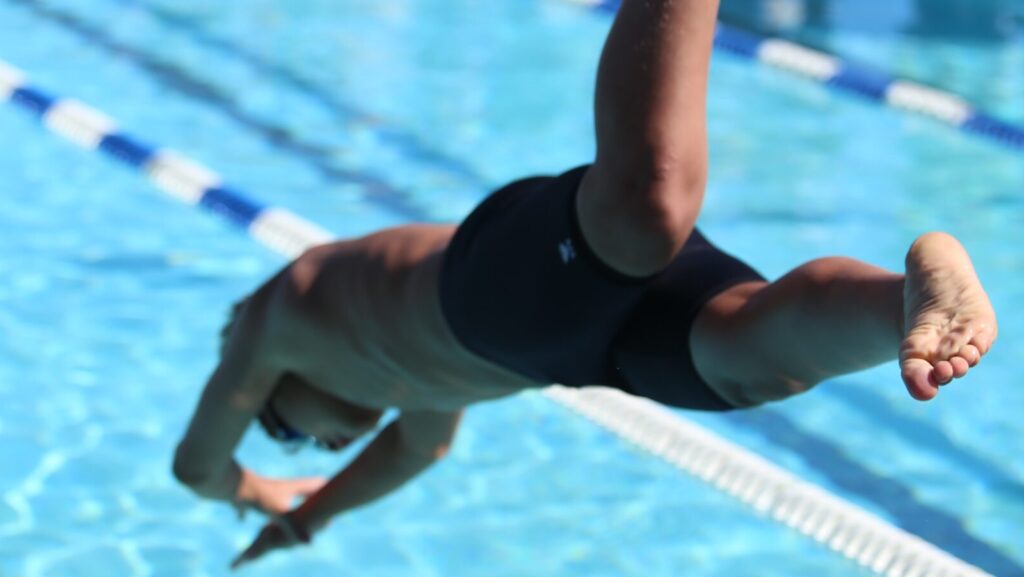TW: mental health, eating disorders, weight loss
Faye Minton
Swim England has banned the weighing of children at their clubs to protect their mental and physiological wellbeing.
Past Attitudes
Since 2021, Swim England has advised against weighing under-18s. But this week, the guidance was solidified in policy, making it compulsory for clubs and coaches of “all aquatic disciplines” to follow. Sports affected by this new policy include swimming, para-swimming, water polo, artistic swimming and diving.
The only under-18s still permitted to be weighed are those who belong to the talent pathway, which highlights potential Olympic, Paralympic, and Commonwealth competitors.
However, talent pathway athletes have still gained significant protection from the policy, which orders weigh-ins must be justified by “clearly documented reasoning, specific to that athlete, and with the athlete’s optimal long-term development in mind.”
“She was ‘mentally ruined’.”
Earlier this year, Commonwealth youth gold medallist Phoebe Lenderyou publicly discussed her battle with bulimia after humiliating weigh-ins during training sessions. She told the BBC that she was left “mentally ruined” by the focus the coaches placed on the team’s weight.
Lenderyou said: “I tell [stories] to my friends and family and they can’t believe it. It’s utterly disgraceful that it went on”
The BBC has conducted an investigation, speaking to swimmers, teachers and coaches across the country. It uncovered some damning stories, including one of a child who was forced to complete a “fat-burning sessions” despite having a broken rib. Other young female swimmers lost so much weight that their periods stopped.
Jane Nickerson, the head of Swim England, responded to the claims, saying that she was “truly sorry” and would commit to eradicating bullying from the organisation.
Moving Forward
In June 2023, Swim England announced that eight representatives had been selected to form a new oversight committee. The committee is set to “manage and oversee the national governing body’s safeguarding, welfare and culture plan,” so that young athletes will not have to suffer as in previous years.
Cassie Patten is one of the inaugural committee representatives. Patten, who won bronze in the Beijing 2008 open-water swimming event, has also been vocal about feeling “broken” after various experiences with coaches.
“We also need to prioritise their mental health and wellbeing.”
This week, Patten said: “I’m really pleased to see Swim England has changed its position statement on weighing athletes and turned it into this important policy.
“Performance is a key part of an athlete’s development but we also need to prioritise their mental health and wellbeing.”
She continued to praise the education and support the policy will provide to athletes struggling with mental health problems or disordered eating patterns.
Off of the Pathway
For some clubs outside of the talent pathway, the weighing of athletes already appears less common.
Niamh Quigg, 21, swam competitively in the Midlands from the ages of 8 to 18.
She told Empoword: “I don’t know anyone that did get weighed – no one from my club did.
“There’s nothing in swimming that could be directly related to your weight.”
“But I do think banning it is a good thing. Particularly because there’s nothing in swimming that could be directly related to your weight. There are no restrictions on being able to compete if you weigh too much or too little.
“I suppose if you’re getting into the bigger leagues and you’re having professional individual training, you and your coach might have a specialised training and diet plan which could involve calculating muscle mass. But I think that’s as far as it should go.”
READ NEXT:
-
ARTISTIC SWIMMING: BEHIND THE SCENES OF A MESMERISING WATER BALLET
-
ANOREXIA AND ME: IT’S TIME TO TELL THE TRUTH
-
SWIMMING TIPS FROM A SWIMMER
Featured image courtesy of B Mat an gelo on Unsplash. No changes were made to this image. Image license found here.

